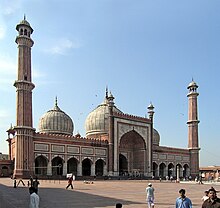Philosophy

Indian philosophy throughout the ages has had a tremendous impact on world thought, especially in the east. Various theistic schools of philosophy, such as the many schools of Buddhism and Hinduism, have had huge influences, but also, India produced some of the longest and most influential secular traditions of logic, rationalism, science, mathematics, materialism, atheism, agnosticism, etc, which are often overlooked due to popular conception that India is a 'mystical' country.
Many of the complex scientific and mathematical concepts such as the idea of zero, found their way to Europe via Arab intermediaries. The most famous school of Indian atheism, is Cārvāka, considered by some to be the oldest materialistic school of thought in the world, composed around the same time as the Hindu Upanishads, as well as the philosophy of Buddhism and Jainism. This period around 600-400 BCE marked a huge leap in both Indian philosophy and world philosophy in general, with contemporary Greek schools emerging simultaneously. Some philosophical concepts from India were introduced to the Greeks, especially during the campaigns of Alexander the Great, and vis a vis, leading some schools of classical Greek philosophy to be almost identical to prior Indian schools.
In addition to the unbroken high emphasis placed on philosophy in India, which has existed since ancient times, modern India has produced some of the world's most influential philosophers of modern times, who have written both in their native languages, and often English. During the British occupation of India, various thinkers, both secular and religious, achieved a new level of recognition across the world as both ancient Indian texts, and the work of contemporary Indian philosophers was translated into English, German and other languages. Swami Vivekananda travelled to America and participated in the 1893 World Parliament of Religions, impressing delegates with a groundbreaking speech that for the first time gave access to eastern, Indian, Hindu and dharmic philosophy to western intellectuals.
As well as various religious thinkers Mahatma Gandhi, Rabindranath Tagore and other members of the Indian freedom movement, generated political philosophy, and formed the basis of modern Indian democracy, secularism and liberalism. Today, economists such as Amartya Sen, who won Asia's first Nobel Prize in economics, continue to give India a reputation as an important contributor to world thought.
Religion
The Indian religions, one of the two main families of world religion (the other being the Abrahamic), originated in India. They include Hinduism, Buddhism, Sikhism, Jainism and other schools of language. Today, Hinduism and Buddhism are the world's third- and fourth-largest religions respectively, with a collective 1.4 billion followers, despite being free of any evangelistic traditions. Unlike the sectarianism that has often marked differences among the Abrahamic schools, the philosophical-like treatment of these religions has generally made the idea of rivalry and conversion alien, leading to extremely close relationships between these faiths.
India is one of the most religiously diverse nations in the world, with one of the most deeply religious societies and cultures. Religion plays a central and definitive role in the life of the country and most of its people. The religion of more than 80.4% of the people is Hinduism, considered the world's oldest religious and philosophical system.
Islam is practiced by around 13.4% of all Indians.[15] Sikhism, Buddhism and Jainism are systems that are strong and influential not only in India but across the world. Christianity, Zoroastrianism, Judaism and the Bahá'í Faith are also influential but their numbers are smaller. Despite the strong role of religion in Indian life, atheism and agnostics are also visible influences.




